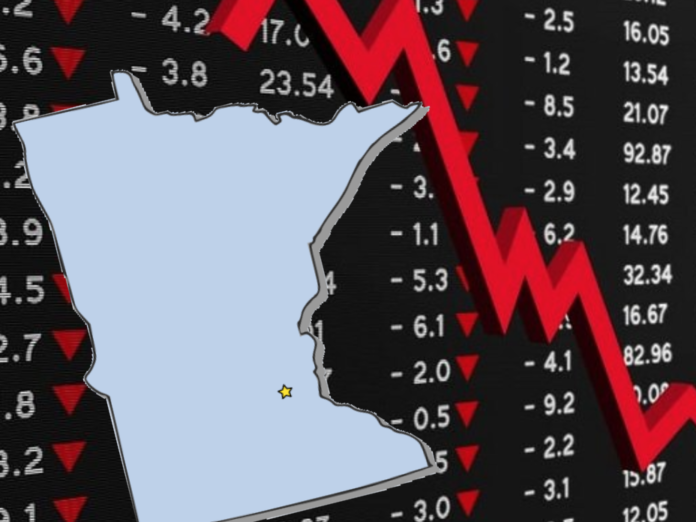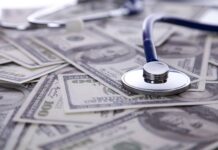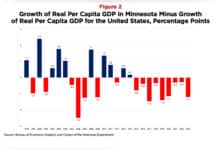Minnesota’s progressive tax policy may hinder its recovery from the economic effects of coronavirus.
Economist John Phelan from the Center of the American Experiment hosted a press conference, Friday, to discuss the short and medium term economic effects of COVID-19 on the Minnesota economy.
Phelan reports that while the virus may have a Christmas-like impact on retailers as consumers stockpile various goods, Minnesota’s tax policy has put the state in a less-than-optimal position to recover from the more prolonged consequences of the virus. Minnesota is the 7th most taxed state in the Union, according to CNN Money.
“One of the first things you’ll notice if you’re like me, you’ve been to Target recently… the shelves are pretty much bare of things like toilet paper, hand sanitizer, hand towels, things like that” Phelan said. “This is a bit like Christmas, in the sense that everyone is running out and buying things.”
However, the short term economic boost that results from stockpiling is doomed to disappear for two reasons, according to the Center’s analysys.

First, after people stockpile a good, they stop buying that product for a time, subsisting off their now inflated supply. What people “tend to do is run down their stocks, you don’t stockpile day after day after day,” Phelan said.
Second, due to coronavirus, “people will stop spending on other things,” the Center economist predicts. Restrictions on travel, cancellations of sporting events and a general reduction in public activity is likely to harm Minnesota’s restaurants, bars, hotels and similar businesses.
“There will be a very short term pop to consumer spending but beyond then the picture is a bit bleeker,” according to the Center.
As the positive effects of the consumer spending spike dissipate, stock prices fall, and Minnesotans “feel poorer and spend less,” the state will suffer negative consequences resulting from its tax policy relative to the nation as a whole, the Center predicts.
“If Minnesota’s economic growth rate had matched that of the U.S. generally since 2000, GDP per capita in our state would be approximately 18% higher now than it actually is,” Phelan said. “This would make it easier to withstand economic challenges and help the state bounce back from the effects of an event like COVID-19.”
“We believe that a lot of this [lack of growth] is down to state successive taxation,” he added.
“What this [Coronavirus] highlights is the need for a strong economy… you want to be a rich, well off, wealthy country. Because firstly that gives you the recourse to fight this, and secondly it means that when you do take a hit to living standards, you’re falling from a higher base rather than a lower base… Minnesota can perhaps could do a lot better here,” the Center economist concluded.











